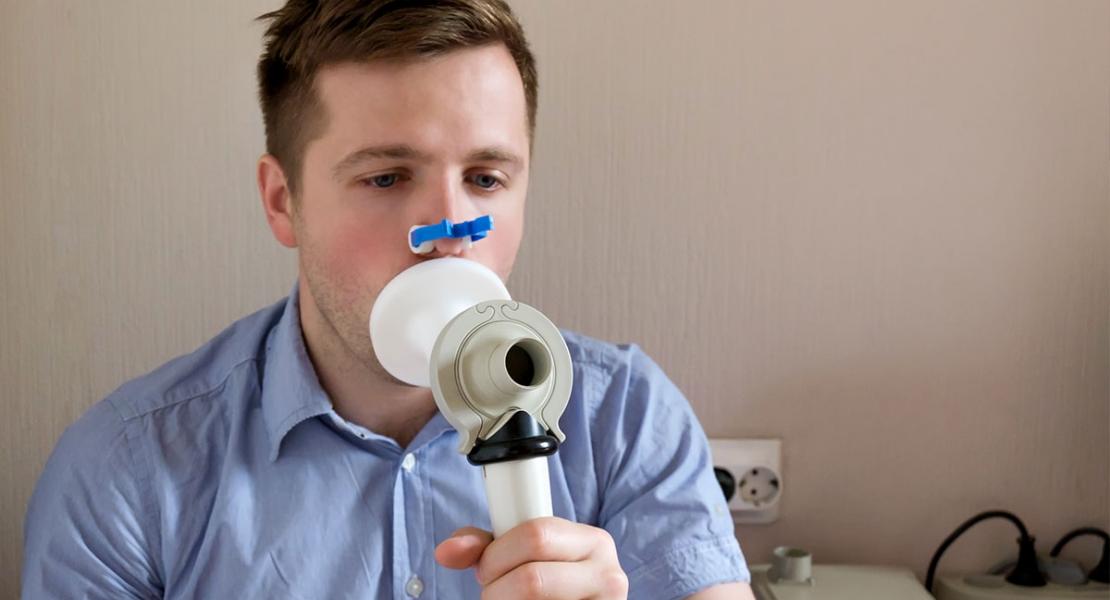Spirometry is a form of office-based pulmonary function testing that is a non-invasive, painless test performed in order provide measurable information in order to assess the function of your lungs. It can be used to help diagnose and monitor such conditions as asthma and chronic obstruction pulmonary disease (COPD). The test takes just a few minutes to complete.
For this test, while in a sitting or standing position, you will be asked to take a deep breath in followed by a forceful breath out of your mouth through a mouthpiece attached to the spirometry machine. Your breath out should be hard and as long as possible (usually 6 seconds). Once you cannot breath out anymore, you will be asked to complete the test by taking a quick breath in. The computer measures this in the form of a series of graphs and numbers. You will be asked complete this at least 3 times and the best of three tests will be used for further analysis.
If required, your nurse will administer a medication (ipratropium-albuterol) through a nebulizer and the test will be repeated in order to look for improvement in the lung function after the bronchodilator use. Alternatively, in certain circumstances you may be asked to vigorously walk or run to assess the response of your lungs to exercise. If a decrease in your lung function occurs, you will be given a breathing treatment to help improve this and the test will be repeated again to measure that improvement.
The following conditions can affect test results: any acute or recent illness, chronic cough, smoking within the previous one hour, using a bronchodilator medication (such as albuterol, xopenex, or other inhaler) within the few hours prior to your test. If possible, please try to avoid using your inhaler medications at least 1-2 hours prior to your visit. If your spirometry shows findings other than asthma, you may be referred for full hospital-based lung function testing with a pulmonologist to evaluate for other lung conditions.
Test results when trended over time give valuable information about the health of your lungs and improvement or deterioration of diseases such as asthma, emphysema or bronchitis.

